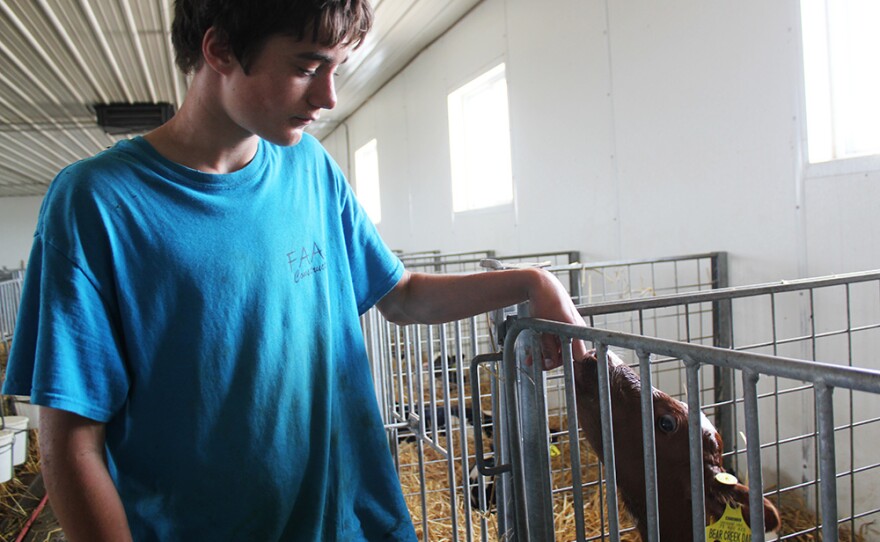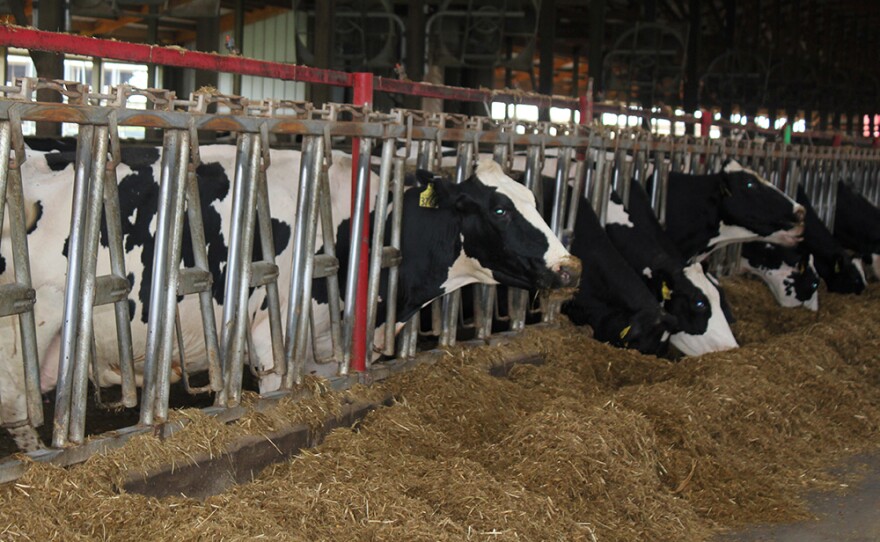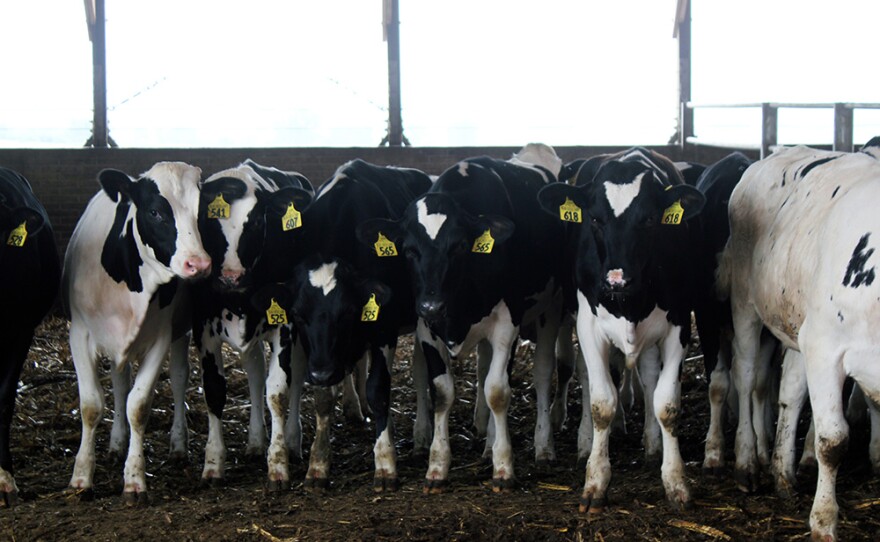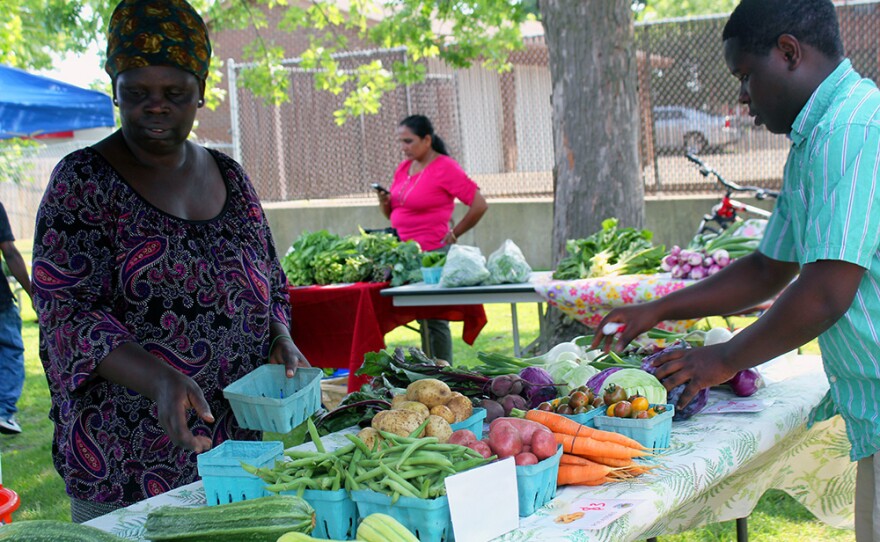Bear Creek Dairy in Brooklyn, Iowa, is home to more than 1,100 cows, who provide about 100,000 pounds of milk each day. The 15-year-old farmer who works closely with the farm’s calves comes from a long line of dairymen – in Europe.
Five years ago, Teun Boelen’s parents sold their farm in the Netherlands and bought a dairy in southeast Iowa because, as his mother explains it, there was no room for their old farm to grow.
“We could sell our land to the city,” said Dorine Boelen. And that made sense for them, “because there were no possibilities for us to stay there longer than 20 years, we calculated.”
By moving to Iowa, she says her five children have the option of a future in farming. Teun and one of his older brothers hope to eventually to farm full-time, alongside their parents.
Immigration is helping to re-shape what agriculture looks like in the Midwest. Farming is already more ethnically diverse than it was even a decade ago and immigrants of all stripes are working the land.
The Boelen family came to this country through an immigration program that allows for visas for an entire family when the new arrivals invest significant dollars and create jobs.
But to be sure, this immigrant experience is unique. Latin Americans make up the majority of immigrants coming to the Midwest today and most of them work at whatever jobs they can. Often, the jobs involve hard manual labor or unappealing work in meat processing plants. Their kids, who come of age in this country, often turn away from agriculture.
Pacifique Simon, born in Congo to Burundian parents, experienced yet another path. After fleeing war and living for many years in refugee camps, six years ago he and his family received asylum in the United States. They landed in Des Moines with plenty of life experience, but not a lot of cash.
Back in Burundi, the family farmed. Now, thanks to a plot of land furnished by a partnership between Lutheran Services in Iowa and Valley Free Church in West Des Moines, they once again can get their hands in the dirt. They’re even selling some vegetables at a farmers market—alongside other refugee-vendors.
“We are so happy about it because we got to produce lot of stuff this year,” Simon said. “And then we are making good money, too, that’s a good thing, to get like another income.”
Simon, who’s 22, enjoys helping in the field, where his family grows potatoes, beets, squash, sweet corn and a spinach-like vegetable they call lenga-lenga, which is better known in Iowa as a weed called amaranth.
Simon can see that his family’s donated plot will never support him, so he’s majoring in agricultural systems technology at Iowa State University. He says classmates from farm families have an easier time becoming farmers. But he has set his sights on an agriculture career that includes Africa.
“I want to learn some skill here and then go teach people back there so they can produce enough food to feed their own family,” Simon said.
He has never been to Burundi, but he says he’s confident the country will be stable enough for him to work there someday.
As the ethnic makeup of the Midwest continues to shift, Teun Boelen and his family harken to a past era of Europeans as the dominant newcomers to this region. But Pacifique Simon and other African, Asian and, especially, Latin American immigrants will contribute more to the future of farming in the Heartland.
How many immigrants are farming in the U.S?
Numbers are hard to come by. We do know: The ethnic makeup of the Midwest is changing; The number of Hispanic farm operators nationwide increased 21 percent from 2007-2012, according to the USDA’s Census of Agriculture.
Click on a county to see its immigrant population and an ethnic breakdown of its farm operators. (Map by Amy Mayer/Harvest Public Media)
This project was reported with assistance from the Institute for Justice & Journalism’s “Immigration in the Heartland” fellowship.








